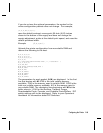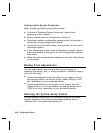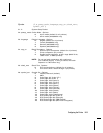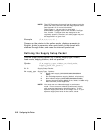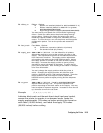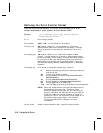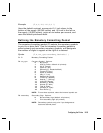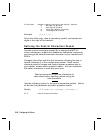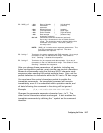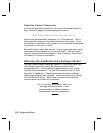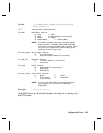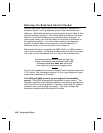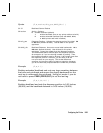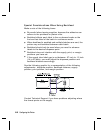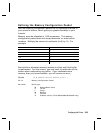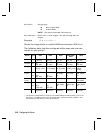
E2. "ANSI_cd" ~123 Start of header { (left bracket)
~044 Parameter , (comma)
separator
~034 Quoted strings " (quotes)
~124 Field separator
p
(pipe sign)
~125 End of header } (right bracket)
~126 Data escape ~~ (double tilde)
character (optional)
def. ch. Immediate command character (optional).
Up to any 3 characters in the 0 to 255 decimal
range. The character must be defined before this
command can be used. The caret (~094) is
normally used.
NOTE: "ANSI_cd" includes seven separate parameters. The
first five parameters are required. The other
parameters are optional.
E3. "string 1" Terminator for status requests and ENQ requests. Up to any 3
characters in the 0 to 255 decimal range. The default is
"013". Sending "" disables this sequence.
E4. "string 2" Terminator for job requests and data uploads. Up to any 3
characters in the 0 to 255 decimal range. The default is none.
Sending "" disables this sequence.
After you change these parameters, all packets, including any
future configuration packets, must use the new control characters.
Monarch recommends using the tilde and ASCII character code
sequence when sending this packet multiple times. Also, set the
packet delimiters to characters within the 21 hex to 7E hex range.
You must send the control characters packet to enable the
immediate commands. An immediate command will execute
immediately, even if it is embedded within quotation marks, and
all data following the command in the string will be ignored.
Example
{
I
,E,"~123~063~034~124~125~126~094" p }
Changes the parameter separator character from , to ?. The
other control characters remain unchanged. It also enables the
immediate commands by defining the ^ symbol as the command
identifier.
Configuring the Printer
2-17



